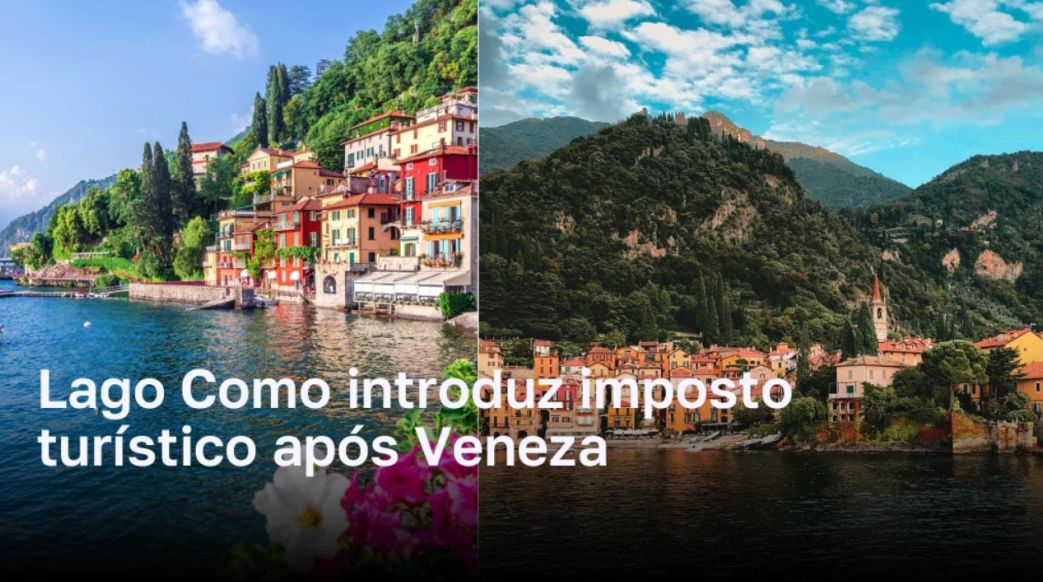Eventos
Lago Como introduz imposto turístico após Veneza
Lago Como, the third largest lake in Italy, is known for its charm, glamour, and thriving tourism industry

Lago Como, the third largest lake in Italy, is known for its charm, glamour, and thriving tourism industry. With up to 1.4 million visitors per year, this popular vacation destination in northern Italy is now considering the introduction of a tourist tax.
Alessandro Rapinese, the mayor of the coastal city of Como, has expressed his concerns about excessive tourism in the area, stating, "It is difficult to be mayor when you are fighting against tourism." He is now considering implementing a daily tax, similar to the one in Venice, and suggests that it may be put into effect soon.
The proposed tax would apply to day-trippers visiting the city of Como. However, the mayor has not provided details regarding the cost of the tax, who would be required to pay it, or when it would be implemented.
If Como adopts a similar model to Venice, the tax would be levied on daily tourists (rather than overnight visitors) and would only be charged on busy days, such as weekends and holidays.
Lago Como Struggles with Excessive Tourism
In recent years, this beautiful lake has been grappling with an increasing number of tourists. The crowds have surged since several celebrities, including George Clooney, have purchased multi-million dollar properties along its shores. Additionally, the lake has served as a backdrop for movies such as Casino Royale and House of Gucci.
Last summer, a lakeside villa that appeared in James Bond and Star Wars films was forced to limit the number of visitors. The Villa del Balbianello reduced its daily visits from 2,000 to a maximum of 1,200 in order to protect the historic property.
The Italian Foundation for the Environment (FAI), which manages the site, described this as a "radical decision" but deemed it necessary to combat the impact of "overtourism, which is increasingly affecting Lago Como."
As Lago Como grapples with the repercussions of its growing popularity, the introduction of a tourist tax may serve as a means to manage the influx of visitors and preserve the region's natural and cultural heritage. The discussions regarding this tax demonstrate the proactive measures being taken to address the challenges presented by excessive tourism in the area.

